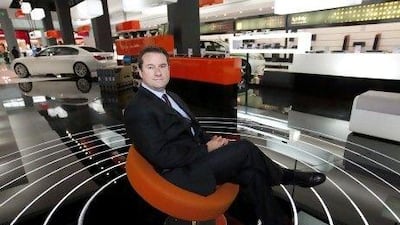Securing a celebrity endorsement can be a tricky business for a company. Jeff Willard, the chief marketing officer for Harman International, which oversees audio brands such as JBL, discusses how to boost the odds for a successful partnership.
So many companies have celebrities as endorsers. Does this tactic still work on shoppers?
Yes, and no. I don't think they work when the endorser has no real connection to the product. Those are the ones that have wasted money. Consumers are very sceptical.
What parameters do you have for finding the right celebrity?
We're looking for people who are committed to using our products and believe in them. Fortunately for us we have the JBL [speakers] brand that has thousands of artists who have used them over the years, so it's a long list to choose from.
Harmon has partnered with bands such as Maroon 5 and Styx. How do you woo somebody famous to sign on?
They all take a lot of effort. For us there isn't a lot of wooing. It's more of a conversation of what we're doing. We work with AR Rahman, who is the most prolific film composer probably of his entire generation. We just announced him as part of our India and Middle East campaign. He said the first studio speakers he bought were JBL.
How much can it cost before a celebrity might commit to a deal?
I obviously can't comment at all on any endorsement deals we've done specifically. But, in general, if you were a major company and going out to sign an A-list artist you'd be paying seven figures.
Celebrities are notorious for being popular one day then consigned to history the next. What contingency plans do you have in case one of your endorsers goes off the wall, so to speak?
You know, our hope is obviously that we pick artists who aren't going to have those problems. You never know. The primary thing we're doing differently with our plan is not having a single artist that we're relying on. It's a multitude of artists. This will be a multi-year campaign, and by the time we're done it'll be artist after artist. If something does happen with one, the whole campaign isn't around them.
You've worked on endorsement deals in the past. What are some of the measures taken if one has to be cancelled?
Most endorsement deals fall through if a celebrity [does something] stupid, or it's not in the interest of the company. Most contracts will have some kind of clause where if you disparage the company you can exit the contract. The celebrity may not do something stupid; they may just lose their popularity, and most people who sign 12 or 24-month deals don't get them renewed [in this case].
Have you ever had to do damage control with any celebs you've signed on?
We haven't, yet, and hopefully don't have to. Part of it is you can never predict what's going to happen. Who you select can improve the odds of success.
* Neil Parmar

